- Home
- Catherine Coulter
KnockOut Page 2
KnockOut Read online
Page 2
Savich spoke to Special Agent Raymond Marley, four-year SAC of the Washington field office, as several agents took positions throughout the bank, calming people down. “I think it’s the Gang of Four, two men, two women. This was their first foray into D.C.”
Ray said, “Savich, how’d you get here so fast?”
“I was one of the customers.”
“Not their lucky day to have the wolfhound in the herd. Didn’t turn out well for them, did it?”
It could have, Savich thought. It could have turned out very differently.
The paramedics came charging through, a dozen WPD uniforms trailing them.
In under a minute, the EMTs had Mac Jamison strapped to a gurney. Savich and Sherlock ran to catch up with them. Jamison’s eyes were closed, and an oxygen mask covered his face. One of the EMTs applied pressure to his blood-soaked chest wound. “Is he going to make it?”
“He’d better,” the EMT said. “I get real grouchy if anybody buys it on my watch.” Seconds later they were gone.
The next set of paramedics took charge of the teenage girl whose mama lay dead not a dozen feet away, soaked in blood from her torn carotid artery. Blood was streaking in all directions across the marble floor; a dozen customers stared numbly at the snaking thick red rivers.
Bank employees were hovering around the customers, holding it together. They’d been trained for this, like flight attendants, but Savich was sure the training hadn’t come close to the terrifying reality. He admired their courage. He walked over to the group. “Who’s the assistant manager?”
“I am, Agent Savich,” a woman said. “Is Mac going to be all right?”
“The EMT told me he was going to make it.” Just a small exaggeration, but the relief flooding all the faces around him made it worthwhile. “If you guys could keep everyone calm for a while longer, I’d really appreciate it.”
Four FBI agents and a couple of local cops stood staring down at the woman. It was hard to tell she was soaked in her own blood since she was dressed entirely in black. Someone had pulled off her black mask. She was about thirty-five, he thought, dark-haired and dark-eyed like her daughter. She had soft white skin and hard eyes, now empty of life.
Buzz Riley came to stand by him. “I’ve heard of this group, of course, got bulletins on each of their jobs. Mac and I even discussed them over lunch the other day. He said they always knew when a bank got a cash delivery from the Federal Reserve. I knew they killed all the bank security guards on their way out, but I’ll tell you, Savich, I never dreamed they’d come here to Georgetown. Neither did Mac. None of us were very worried, even though Mac brought up that shoot-out of yours at the Barnes and Noble. I’ll tell you, when the guy shoved that thirty-eight in my ear, I thought I was a dead man.” Buzz paused a moment, swallowed hard. “Thanks, Savich. Lordy, when I tell my kids how you brought one of the robbers down and saved my life, expect a dozen excited calls.”
“We’re about even on that score, Buzz.”
Buzz waved that away. He said, his voice still hyper, “You know, when I heard women were part of the group, I didn’t know if I believed it, in my gut, you know? I mean, Bonnie Parker hit the scene long before I was even born. But this, Savich, bringing her kid with her to rob a bank. Can you figure that?”
No, Savich couldn’t figure it.
“That girl—she was vicious, whacked out. I bet I’ll be seeing more white hairs than I had five minutes before these bozos came charging into the bank.” Buzz put his hand on Savich’s arm. “You know what? When I believed in my gut I’d reached the end, I saw my grandmother, isn’t that strange? I think I was a little kid and she was yelling something at me.” He swallowed, shook his head.
Savich said, “It was close, but only Mac got hurt, that’s what’s amazing, with all those bullets flying around.”
“We lucked out. We surely did.” Buzz grinned over at Sherlock, who was speaking to the assistant manager. “Your wife, right? Mac told me about her, said she was a pistol, said he was looking forward to seeing her at the gym.”
AFTER THREE HOURS OF exhaustive debriefing at the Hoover Building, Savich took a call from Jumbo Hardy of The Washington Post. Jumbo said only one word, “Why?”
“One of the robbers had a gun in the security guard’s ear. He was going to kill him for the sport of it.”
Jumbo was silent for a moment. “That’s Buzz Riley, right? Retired cop?”
“Yes.”
A pause, then, “I spoke to him. He told me that girl was going to kill you too. Jeez, Savich, that was a hell of a risk you took.”
It beat lying there watching Buzz get his brains blown out, Savich thought, and knew his own brains had been on the line too. He said what he’d said a dozen times already, the last time to Director Mueller himself: “I had no choice and no time. I had to act.” Savich could hear Hardy typing on his laptop.
“Oh, yeah, I checked the hospital. The girl you kicked in the gut—of all things, you injured her duodenum, and maybe her pancreas, something the doctors only see in auto accidents. My friends at the hospital tell me she’s in surgery. She’ll probably make it, but she’s not going to be a happy camper for a while. You know her name?”
Of course they knew all the robbers’ names now. “Good try, Jumbo. You know I can’t give that out yet.”
“I hear the FBI agents who’d just pulled up outside the bank brought down the fourth bank robber as he was fleeing. That right?”
It was, but Savich said, “We’re still sorting everything out. I’m sure you can get all the details from Mr. Maitland.”
More typing on the laptop, then, “Hey, Savich, I wouldn’t be surprised if a bank customer sues you for endangering his life.”
He wouldn’t be surprised either, Savich thought as he punched off his cell, given the deadening fear and the human need to blame someone when bad things happen. And the robbers were all dead except for the teenage girl. As he pulled on his jacket, he remembered the hundred-dollar bills scattered over the bank floor, some of them floating on the rivulets of blood from Jennifer Smiley’s neck. He closed his office door, saw Sherlock, and went to her.
“Good move with your cell,” she said, and hugged him. He held her carefully, a habit now, since her surgery two months before. “I’ve told everyone else, but not you, Dillon. We were on the road in a minute, no longer. We heard everything on the speakerphone. Riley told me the girl was going to kill you, Dillon, she was just going to shoot you and dash out of the bank, laughing.” She hugged him tighter.
Agent Ruth Warnecki said, “He’s alive, Sherlock, and I’d say he deserves a pizza.” She paused, turned to stare hard at Savich. “Sherlock might be used to you playing fast and loose with your hide, but I’m not. I’m asking you real nice, Dillon, don’t do that again, okay?”
He managed a grin. “Do you know I was at the bank to check on Sean’s college fund? There was some sort of entry error that I couldn’t deal with online.” He shook his head, laughed at life’s improbabilities. He said, “You’re right, Ruth, a pizza sounds good.”
AT ELEVEN O’CLOCK that night, Mr. Maitland called to tell him they’d found the getaway car, the image captured by ATM cameras. It was a black Dodge 2008 Grand Caravan, with swivel seats and a backseat TV. It had been stolen four days earlier from a Cranston, Virginia, dentist, and left on a side road outside Ladderville, Maryland. There was no sign of the driver but lots of fingerprints.
“I guess they should call it the Gang of Five then, since someone had to be driving that van,” Savich said.
“Let’s just hope this bozo’s prints are in the system.”
2
GEORGETOWN, WASHINGTON, D.C.
Thursday night, three days later
The first time she spoke to him was at midnight.
It’s you, it’s really you. I can see you. Can you hear me?
It was a child’s voice, high, excited, with light bursts of breathing.
He heard her voice at the edge of sleep. At fi
rst he didn’t understand, thought maybe it was Sean, but then he saw her—the shape of her small head, then a tangle of long, dark brown hair, and he thought, Yes, it’s me. Who are you?
I can really see you, just like I could see my dad. He died, you know. Your name’s Dillon and I saw you standing in front of that bank on TV, and listened to the TV people tell what you did.
At first Savich didn’t know what she was talking about. You saw me on TV?
Oh, yes. I told my mama you were a hero. You took care of those bank robbers, made them real sorry. She said you were crazy, said what if there’d been kids in the bank?
Raise your face so I can see you. Who are you?
She shoved back her hair and looked straight at him. I’m Autumn.
Autumn. Now he saw her small, triangular face, her child-white skin, beautiful eyes, a lighter blue than Sherlock’s, framed with absurdly long lashes, freckles across the bridge of her nose, but there was something wrong, something—Can you see me, Autumn?
Oh, yes. You’re all dark.
How did you get to me?
I haven’t tried to call anyone since my dad died. Last night I thought real hard, and tried to picture your face, but you wouldn’t come. Then tonight, I saw you in my mind standing in front of the bank, and there you were. I think you’re rich, Dillon, real rich.
No, I’m not rich.
You’re inside-rich and you’re wide open, at least tonight you are. Mama’s afraid, she’s always afraid; well, I’m afraid too, since I’m the one who saw them. Mama said we have to hide real good or they’ll find us. She jumps out of her skin whenever anybody comes close. I do too. They’re real scary, Dillon. I told her I’d ask you what to do. Mama started to shake her head at me like she always used to do, then she didn’t.
I told her I might know if they get close, and I think she believes me. I don’t believe me, though. I’m just not sure about anything now. Everything’s so scary after Bricker’s Bowl.
Your mama’s afraid of something you saw? What did you see, Autumn?
I can’t, I can’t—Fear knifed through her voice. He was afraid she’d hyperventilate.
Autumn, it’s okay. No, don’t fade out. Stay with me. Can you tell me where you are?
Mama says it’s hard to hide because of the Internet, but I don’t think Blessed needs the Internet. She says that’s why we’re in the boondocks. It’s nowhere, she says, and maybe they won’t find us here, maybe even Blessed won’t find us here. It’s real pretty, lots of trees, and the mountains are everywhere, all around you, and they go on forever, but today was real hot. She hopes Uncle Tollie can help us, but he isn’t home yet, so we’re waiting for him. He knows people like you, that’s what Mama says.
Can you tell me who’s trying to find you, Autumn? This man named Blessed? Is he from Bricker’s Bowl?
Yes, his name’s Blessed. It’s a neat name, but he’s creepy. Mama says that’s because of what he’s like. I think that house in Bricker’s Bowl is creepier. That’s where they buried—no, Mama said I can’t ever ever tell because it sounds too crazy and nobody would believe us. At least we have some money. Mama found it in Daddy’s safe deposit box. It’s not just Blessed, Dillon, it’s all of them. What do you think we should do?
First, tell me where you are. What’s your last name?
Her small face blurred. I can’t—
Yes, you can. Autumn! No, wait—
He heard a distant echo of her voice, as if she were calling him from inside a well. I can’t see you!
It’s all right. Just relax and try again.
Her voice was more distant now, only a whisper, her face a blur. I’ll try to call again so you can tell me what to do.
But who are you? Where are you?
The little girl was gone, like someone flipped a switch. Where there had been bright color and light and a child so close he could touch her, there was now only empty blackness and his racing thoughts. Savich kept calling to her, but she was gone. It was evidently only a one-way circuit. She hadn’t connected psychically with anyone except her father, now dead, so she would have to learn to control the psychic communication with him. Autumn and her mother were in big trouble, and here he was helpless, since he had no clue who she was or where she was.
Well, that wasn’t exactly true. Her name was Autumn and she was in the mountains, probably in the Appalachians, he hoped close by, maybe somewhere in Virginia. Tomorrow he’d make some calls to police chiefs and sheriffs he knew throughout the state, have them call others. She and her mom were new to town. That would help. Uncle Tollie? He’d throw his name in the computer, see what popped up. Retired? What was his real name? Surely not Tollie. He sighed, closed his eyes, and tried once again to call her.
No answer. No flicker of an image.
He lay there, arms crossed behind his head, staring up at the dark ceiling. Did Autumn’s mother really accept that she had this amazing gift?
Sherlock’s sleepy voice sounded against his neck. “Dillon? Why are you awake?”
He settled her face against his shoulder, kissed her nose. “Go back to sleep, sweetheart. I’ll tell you in the morning.”
3
TITUSVILLE, VIRGINIA
Saturday evening, two days later
Ethan Merriweather felt hopelessness sweeping over him like a tsunami. It didn’t help that the sky was blacker than the bottom of a cauldron tonight—no moon, no stars, only drooping, bloated clouds pressing down on the thick-treed hills like so many black hats. His grandpa would have poked his arm and told him he was sounding like a long-haired poet again. His grandpa would have said it with a sort of Scottish lilt in his heavily accented voice, a spoken song, Ethan had always thought, one of his thick, white eyebrows arched higher than any eyebrow Ethan had ever seen. He’d practiced for hours in front of a mirror but never achieved his grandfather’s lift.
He knew it was time to call it a day. Or a night.
Where are you?
Ethan’s cell screamed out “Blood on Your Hands,” a grinding death-metal rock ringtone that spiked his brain better than a double espresso. He picked it up and said right off, his heart speeding up a bit, “Tell me she’s been found.”
“Sorry, Sheriff, still no sign of her,” said Ox, his senior deputy. “I called to tell you the three rangers from Thunder Ridge district are ready to call it quits for the night, said they can’t do anything more now that it’s dark.”
“Yeah, they’re right. I’ll call Faydeen, have her round everybody else up, tell them to go home. We’ll pick it up tomorrow morning. How you feeling, Ox?”
“I’m hunkered down beside you in a swamp of worry, Sheriff. Even my evening infusion of Turkish tar didn’t hold me up long.”
Ethan said, “There’s lots of room in my swamp, so welcome aboard. See you in the morning.”
“You going to go home too, Sheriff?”
“Yeah, to feed the critters, then I’ve got to see Mrs. Backman in town, let her know what we’re doing. I’m nearly finished driving the perimeter of the wilderness.” Again. “Damnation, where is she, Ox? We’ve covered all the roads, the rangers have checked and rechecked the trails and campsites without a sign of her, and no one’s seen hide nor hair of her in or out of town. Nothing more to do until it’s light again. Go home to Belle, Ox.”
“Yeah, my sweetheart and I deserve big steaks, then we’ll have a nice run in the woods.”
Three more miles, Ethan thought as he punched off his cell, and he’d hit Rural Route 10, a winding two-lane country road that would take him to Highway 41, and back into Titusville.
Titus Hitch Wilderness. He’d grown up here, knew every inch of the four thousand and fifty-four acres. He’d climbed the highest peak, called Titus Punch, many times and fished since he was four years old alongside his grandpa in the Sweet Onion River that flowed below the Appalachian Trail. He’d eaten tuna-salad sandwiches on Sod Drummer’s Ridge, a jagged, toothy line of rocks that cut the wilderness in half, and painted the endless s
tretches of tree-carpeted hills in every season. He’d explored the treacherous gullies, like knife gashes made by pissed-off giants, his grandpa had said, spent nights in almost all the caves. He’d even run through it in hundred-mile ultramarathons every year until a torn ACL, nearly rehabbed now, had brought him down on the last one the year before.
But none of his knowledge had helped. His birthplace, his sanctuary, had turned a deaf ear. He felt itchy and cold, and the creep of fear for the single little girl. At night the trees and hills seemed to draw in around you here, smothering all light, like the devil closing his black fist.
He hadn’t found one seven-year-old little girl, missing since this morning. He didn’t want to let the thought in, but he couldn’t help it. She could be lying somewhere hurt, unable to call for help, or even dead. Someone could have lured her away, maybe even killed her, buried her, or left her for the animals.
He hated it.
He punched in the sheriff’s office number and got Faydeen. She sounded tired, and no wonder, but he knew she’d make sure every searcher was thanked and asked to start up again in the morning. He started to call Gerald’s Loft, the B-&-B where the mother and child had been staying, but disconnected. No, better to tell her everything in person. He had some questions for her.
Ethan had seen her and the little girl around Titusville for the past week—summer visitors, he’d been told when Mavis had introduced them in the checkout line in Blinker’s Market a couple of days ago. She hadn’t met his eyes. She’d backed her cart away. For some reason he couldn’t figure, she didn’t want to be anywhere near him. Because he was a man? Or because he was the sheriff? A short vacation, that’s all he’d gotten out of her. He realized he didn’t really know a thing about her, since he’d been so anxious to get on the road and find the child. She’d handed him a photo, not meeting his eyes. “I was taking a nap. Autumn was playing with her dolls—the three princesses, she calls them. I only slept for an hour, not more, I’m sure of that.” He heard fear and soul-rotting guilt in her voice.

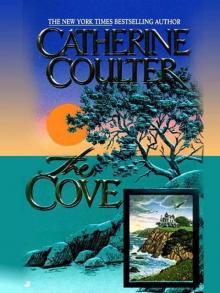 The Cove
The Cove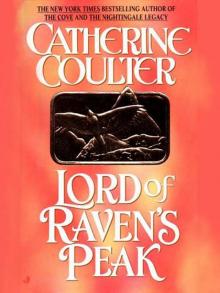 Lord of Raven's Peak
Lord of Raven's Peak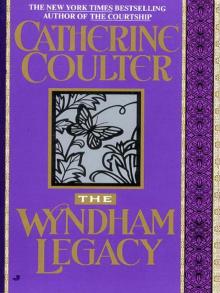 The Wyndham Legacy
The Wyndham Legacy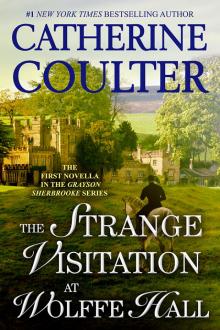 The Strange Visitation at Wolffe Hall
The Strange Visitation at Wolffe Hall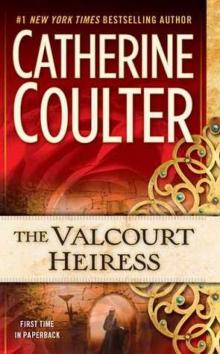 The Valcourt Heiress
The Valcourt Heiress Bombshell
Bombshell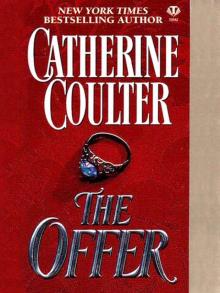 The Offer
The Offer The Edge
The Edge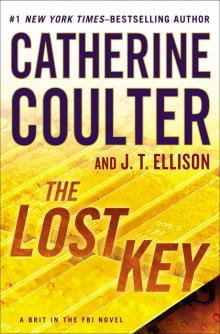 The Lost Key
The Lost Key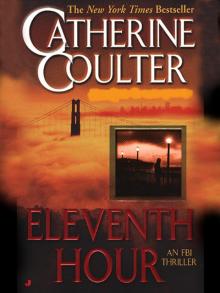 Eleventh Hour
Eleventh Hour Blindside
Blindside Devil's Daughter
Devil's Daughter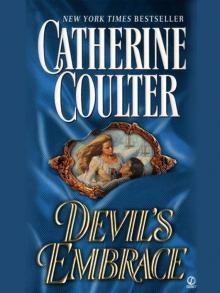 Devil's Embrace
Devil's Embrace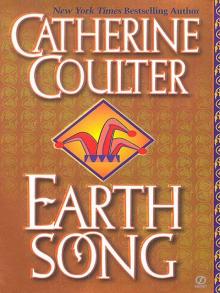 Earth Song
Earth Song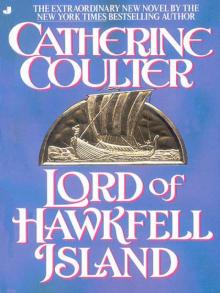 Lord of Hawkfell Island
Lord of Hawkfell Island Calypso Magic
Calypso Magic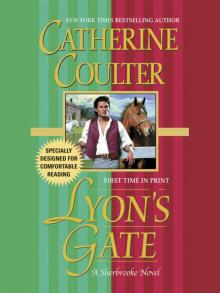 Lyon's Gate
Lyon's Gate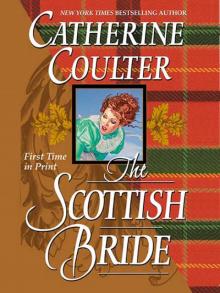 The Scottish Bride
The Scottish Bride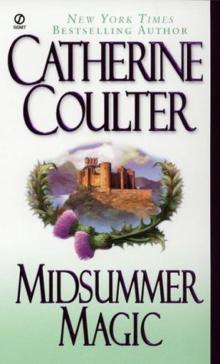 Midsummer Magic
Midsummer Magic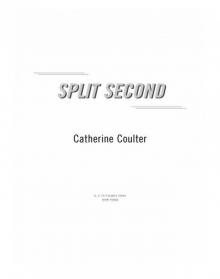 Split Second
Split Second Enigma
Enigma Blowout
Blowout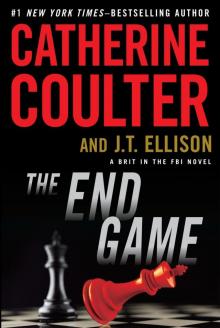 The End Game
The End Game Double Take
Double Take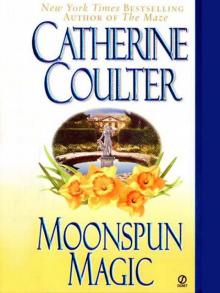 Moonspun Magic
Moonspun Magic The Courtship
The Courtship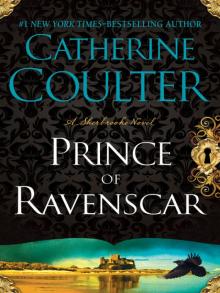 Prince of Ravenscar
Prince of Ravenscar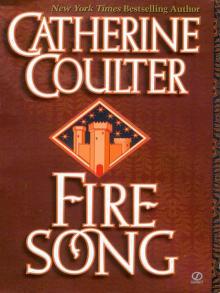 Fire Song
Fire Song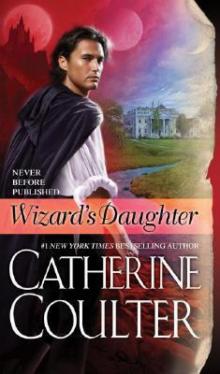 Wizard's Daughter
Wizard's Daughter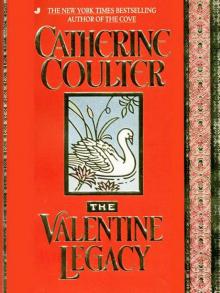 The Valentine Legacy
The Valentine Legacy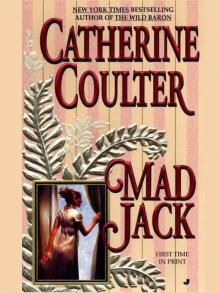 Mad Jack
Mad Jack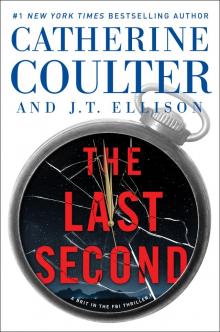 The Last Second
The Last Second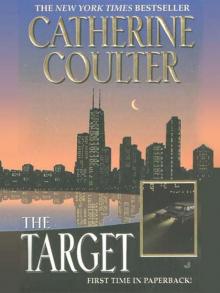 The Target
The Target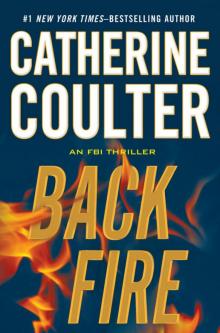 Backfire
Backfire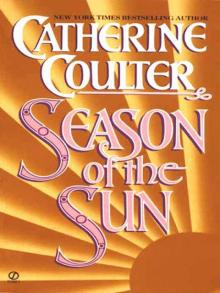 Season of the Sun
Season of the Sun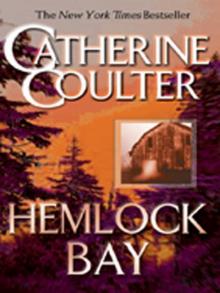 Hemlock Bay
Hemlock Bay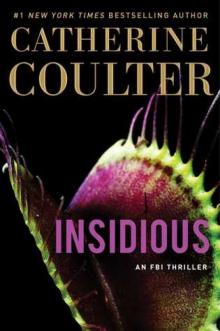 Insidious
Insidious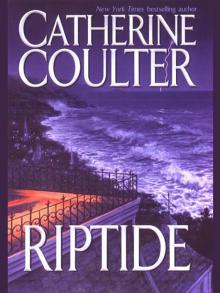 Riptide
Riptide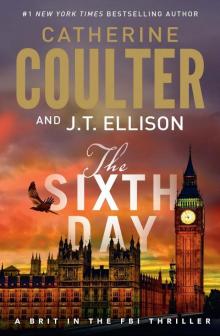 The Sixth Day
The Sixth Day Secret Song
Secret Song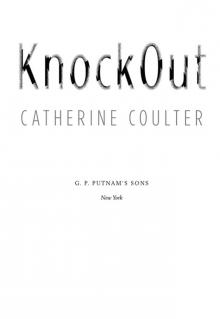 KnockOut
KnockOut Jade Star
Jade Star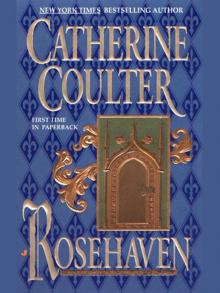 Rosehaven
Rosehaven The Hellion Bride
The Hellion Bride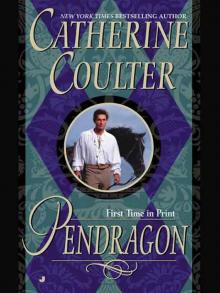 Pendragon
Pendragon Vortex
Vortex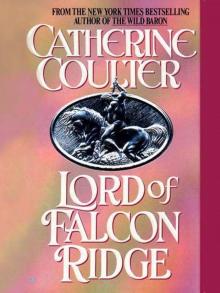 Lord of Falcon Ridge
Lord of Falcon Ridge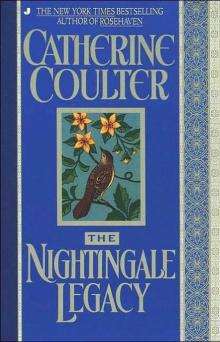 The Nightingale Legacy
The Nightingale Legacy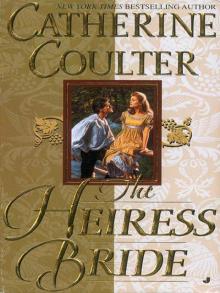 The Heiress Bride
The Heiress Bride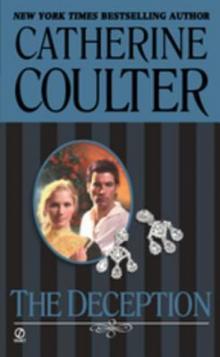 The Deception
The Deception The Maze
The Maze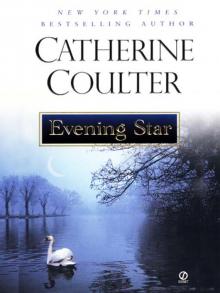 Evening Star
Evening Star Wild Star
Wild Star The Final Cut
The Final Cut Paradox
Paradox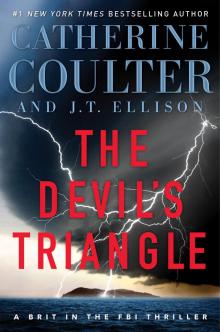 The Devil's Triangle
The Devil's Triangle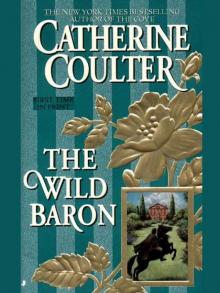 The Wild Baron
The Wild Baron Point Blank
Point Blank Labyrinth
Labyrinth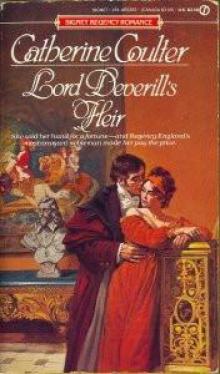 Lord Deverill's Heir
Lord Deverill's Heir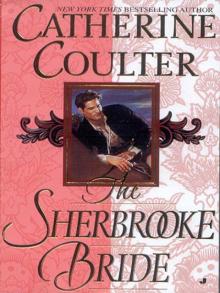 The Sherbrooke Bride
The Sherbrooke Bride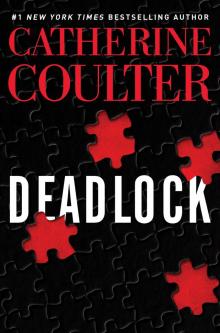 Deadlock
Deadlock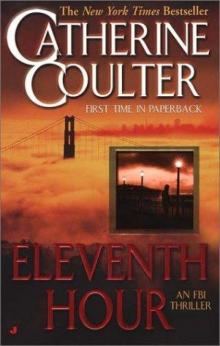 Eleventh Hour f-7
Eleventh Hour f-7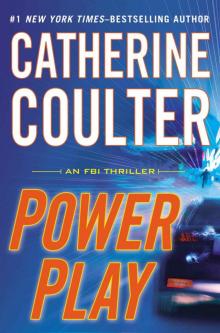 Power Play (An FBI Thriller)
Power Play (An FBI Thriller)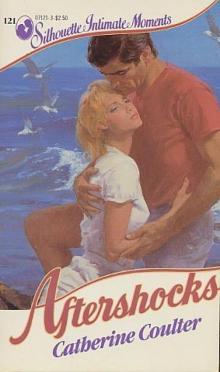 Aftershocks
Aftershocks Sherbrooke Twins tb-8
Sherbrooke Twins tb-8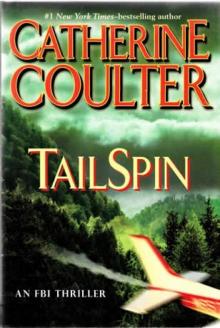 Tail Spin ft-12
Tail Spin ft-12 The FBI Thrillers Collection
The FBI Thrillers Collection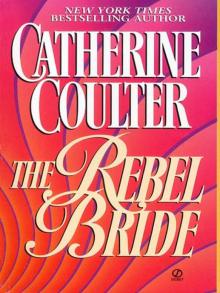 The Rebel Bride
The Rebel Bride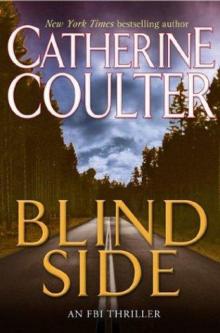 Blindside f-8
Blindside f-8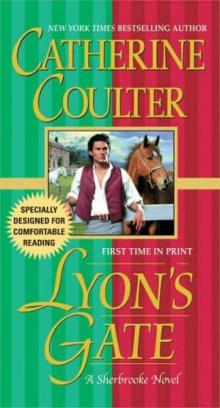 Lyons Gate tb-9
Lyons Gate tb-9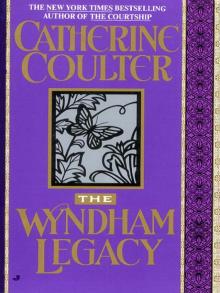 Wyndham Legacy
Wyndham Legacy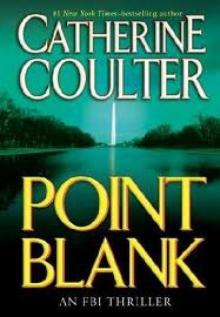 Point Blank f-10
Point Blank f-10 The Prince of Ravenscar
The Prince of Ravenscar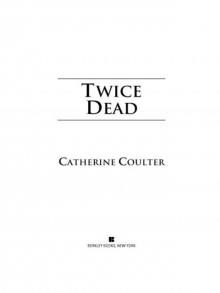 Twice Dead
Twice Dead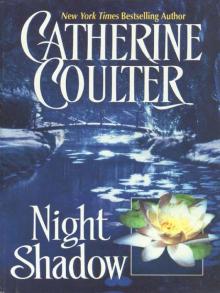 Night Shadow
Night Shadow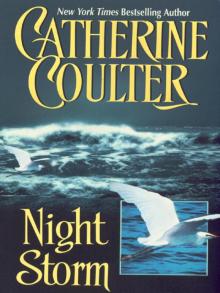 Night Storm
Night Storm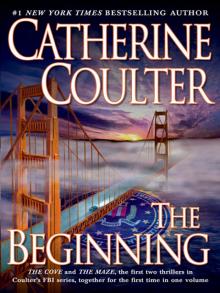 The Beginning
The Beginning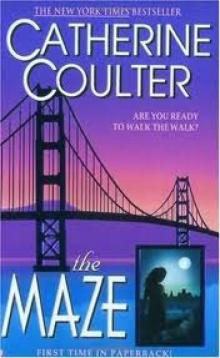 The Maze ft-2
The Maze ft-2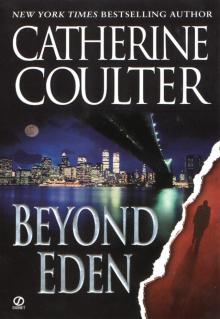 Beyond Eden
Beyond Eden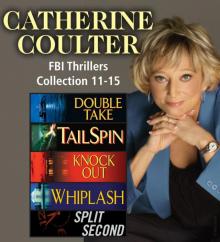 The FBI Thrillers Collection: Vol 11-15
The FBI Thrillers Collection: Vol 11-15 FALSE PRETENSES
FALSE PRETENSES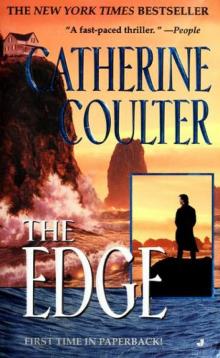 The Edge f-4
The Edge f-4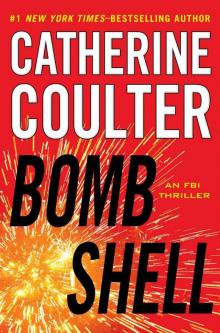 Bombshell (AN FBI THRILLER)
Bombshell (AN FBI THRILLER) The Ancient Spirits of Sedgwick House (Grayson Sherbrooke's Otherworldly Adventures Book 3)
The Ancient Spirits of Sedgwick House (Grayson Sherbrooke's Otherworldly Adventures Book 3)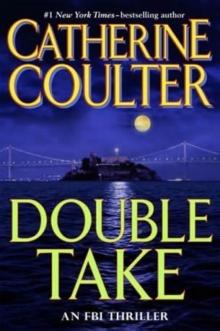 Double Take ft-11
Double Take ft-11 The Heir
The Heir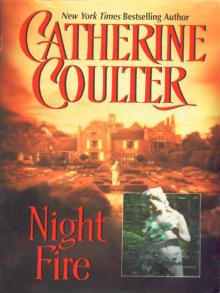 Night Fire
Night Fire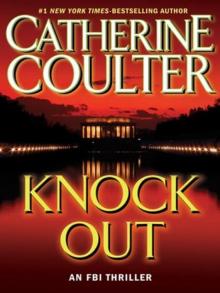 KnockOut ft-13
KnockOut ft-13 Hemlock Bay f-6
Hemlock Bay f-6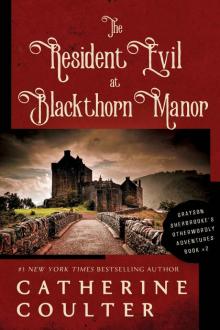 The Resident Evil at Blackthorn Manor (Kindle Single) (Grayson Sherbrooke's Otherworldly Adventures Book 2)
The Resident Evil at Blackthorn Manor (Kindle Single) (Grayson Sherbrooke's Otherworldly Adventures Book 2)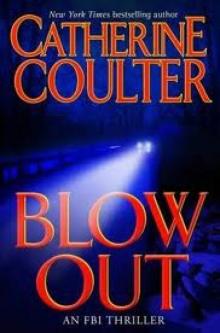 Blowout ft-9
Blowout ft-9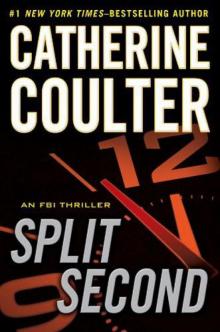 Split Second f-15
Split Second f-15 The Sherbrooke Series Novels 1-5
The Sherbrooke Series Novels 1-5 Impulse
Impulse Paradox (An FBI Thriller Book 22)
Paradox (An FBI Thriller Book 22)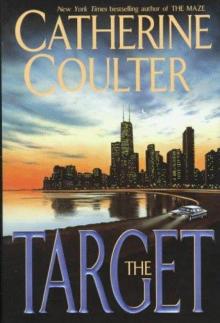 The Target f-3
The Target f-3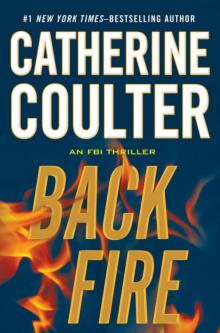 Backfire fst-16
Backfire fst-16 Born To Be Wild
Born To Be Wild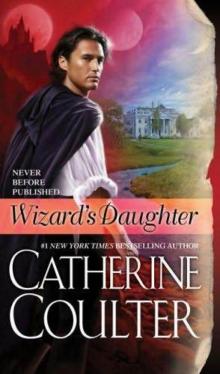 Wizards Daughter tb-10
Wizards Daughter tb-10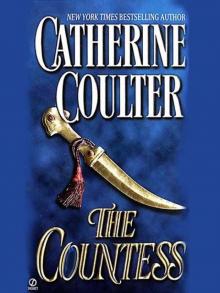 The Countess
The Countess